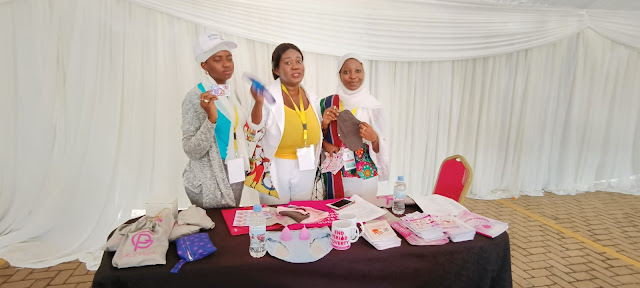We are celebrating the successful completion of LGBTQ campaign in Angola, by Sofonie Dala
Our campaign ''Pride - Embrancing diversity-LGBTQ in Angola'' came to an end!
Ladies and gentlemen, welcome to the latest webisode of our show!
This analysis focused on whether people around Angola think that homosexuality should be accepted by society or not. The full question wording was, “Angola has decriminalized homosexuality. What's your opinion?
Today we have a very special guest, she/he belongs to the LGBTQ community in Angola.
We interviewed several people of different genders and ages, and carefully analyzed each one's point of view. Very few people say that society should accept homosexuality; specifically 98% of them categorically do not accept homosexuality, other 2% who support the inclusion of the LGBTQ community in society are people who apparently are not rigorous practitioners of religion.
For example, this woman who preferred to speak anonymously was very satisfied with the decision of the Angolan government, for having decriminalized homosexuality in our society.
Hi!
What did Angola do?
Angola has decriminalized homosexuality. What is your point of view?
Well, for me this is even better, it's good.
So, do you agree with the government's decision?
Yeah, if they decided like that, who are we to say no?
This research was enough to realize that there are no significant differences between the opinion of men and women in the capital of Angola. However, of the 6 people interviewed (except the LGBTQ representative), there was a significant difference, women were more likely to approve of homosexuality than men.
We spoke with 6 ordinary citizens 3 female and 3 male, the study shows the largest divide, with 90% of 2 females saying homosexuality should be accepted by society against 10% of a female who does not accept homosexuality. In the case of boys, 100% of them categorically do not accept homosexuality and they are based on very strict biblical principles.
Please click the links below to watch all the webisodes.
We stand for inclusivity. We believe that everyone has the right to a safe and welcoming environment in our society.
Harassment includes but is not limited to offensive verbal or written comments related to gender, age, sexual orientation, disability, physical appearance, body size, race, religion, social class, economic status, veteran status, sexual images, deliberate intimidation, stalking, following, harassing photography or recording, sustained disruption of talks or other events, inappropriate physical contact, and unwelcome sexual attention.
Summary: Be respectful. Harassment and abuse are never tolerated.
The SDGs have a guiding principle that “no one will be left behind” and a commitment to prioritizing the poorest and most marginalized. The African Union’s Agenda 2063 has similar commitments to including and prioritizing the poorest and most marginalized in development efforts. There is wide-spread evidence that sexual and gender minorities are often among the most socially, politically and economically marginalized populations and thus require specific consideration and targeted inclusion to realize the vision of the SDGs.
We have zero-tolerance for discrimination and does not discriminate on the basis of race, colour, national origin, ethnic or social background, genetic information, gender, gender identity and/or expression, sexual orientation, religion or belief, HIV status or disability.
The webisodes are being released on this channel:
http://wegotthisangola.blogspot.com/
Stay tuned!





Comments
Post a Comment